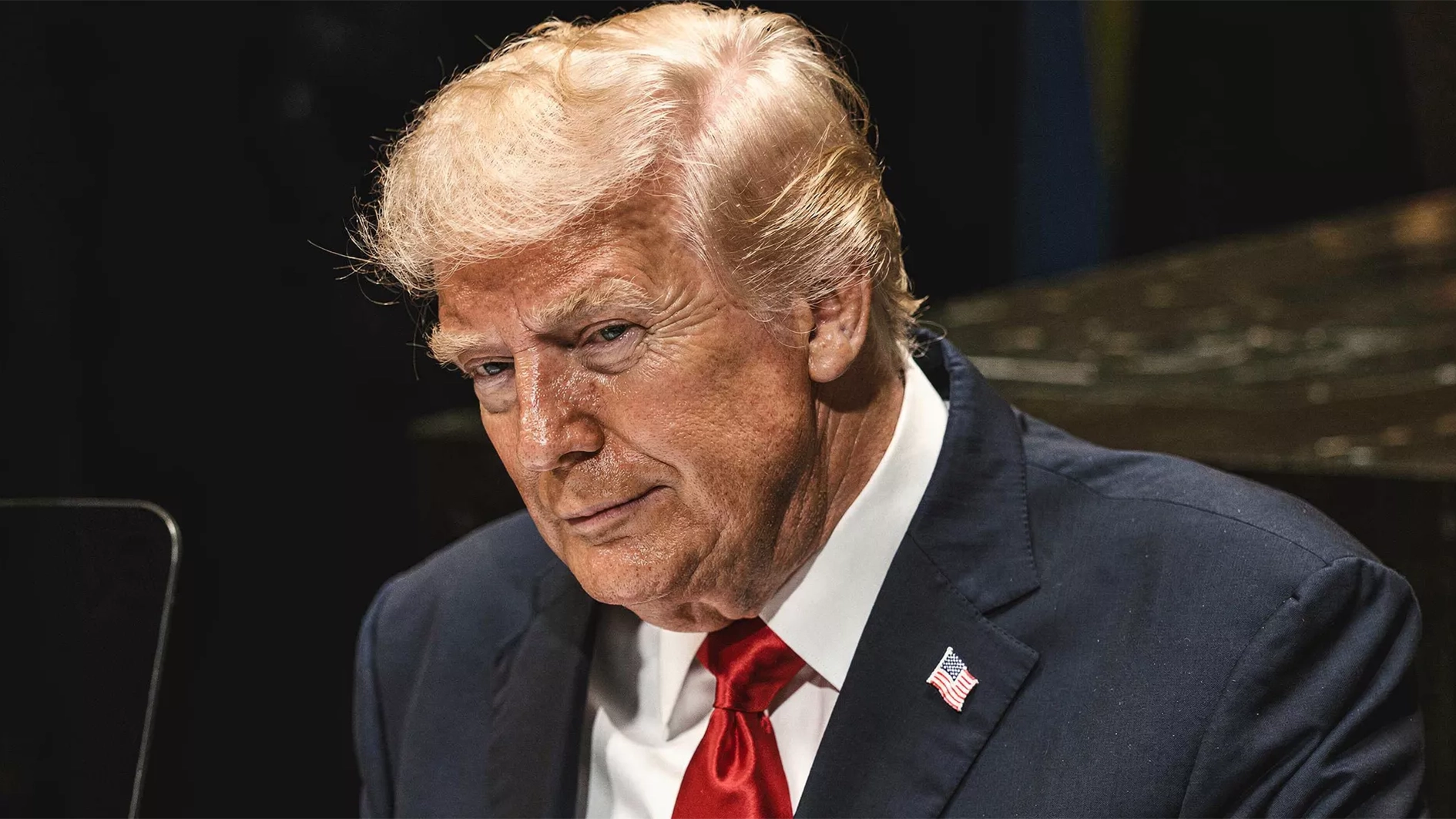 When you talk about peace, through strength, what you are talking about is deterrence – Chris Gibson
When you talk about peace, through strength, what you are talking about is deterrence – Chris Gibson
Aspirational, progressive and serious nations, periodically review their strategic priorities against current, emerging, potential, “unforeseen” and “unthinkable” circumstances and risks.
This appertains to political, economic, social, technological, legal, environmental, sustainability, governance and geo-security dynamics, in a progressively unsettled world of cascading complexities and volatilities. That thesis rests upon three pillars.
First, each sovereign nation has an overriding duty to safeguard the security and welfare of its people and interests, as exemplified, in part, by section 14 (2)(a) and (b), of the 1999 Nigerian Constitution (as amended), (the “Constitution”) viz: “sovereignty belongs to the people of Nigeria from whom government through this Constitution derives all its powers and authority; the security and welfare of the people shall be the primary purpose of government.”
Second, is that although international cooperation and partnerships are at times desirable and or necessary in certain contexts, nevertheless, “the security and welfare of the people” which is the overriding obligation of government, cannot be outsourced! Third, everything that’s lawful, for the execution of that overriding duty is justifiable from a geostrategic, geoeconomic and geosecuritycontext. Hence, the extant discourse of Nigeria’s strategic options for nuclear power development.
So, what’s nuclear technology development? What, if any, is Nigeria’s strategy for nuclear development? Is it fit-for-purpose amidst emerging global risks and threats? From a geoeconomic perspective, will it enhance or undermine Nigeria’s aspirations for enduring energy security? If developed, will it be used exclusively for peaceful purposes? Advancing from a geosecurity angle, will it be used as strategic deterrence against current and future enemies?
If the sovereign nations making up the permanent five (“P5”) members of the UN security council possess nuclear power capabilities exactly what, in principle, prevents Nigeria? Should Nigeria remain a signatory party to the Nuclear Non-proliferation treaty (NPT) givendevastating Russia vs Ukraine, Israel vs Palestine/ Lebanon, Sudan Army vs Rapid Support Forces conflicts; which together, have resulted in the deaths of hundreds of thousands of people and displaced several millions of people across Europe, the Middle East and Africa?
Like the Statutes of General Application Act applicable in England as at January 1, 1900(until Nigeria’s Independence on October 1, 1960); striking historical lessons are of universal application; and therefore, afford excellent insights into the development of nuclear technology. It was originally developed in the 1940s and utilises energy thereby derived by splitting atoms, comprising neutrons and protons.Nuclear energy isproduced either by fission, when atomic nuclei fragment into multiple parts, or via fusion, when atomic nuclei are brigaded. The historical antecedents of nuclear energy were in defence when the research and deployment centred around geosecurity and warfare.
The world’s first and only deployment of nuclear (or atomic) weapons, by United States forces, over the Japanese cities of Hiroshima and Nagasaki on August 6 and 9, 1945 respectively, is estimated to have killed over 240,000 people during World War II (WWII).
The United States Truman administration argued that it was a sine qua non for ending WWII; impeding the Soviet Union’s impending invasion of Japan at the height of the Cold War; driven byJapanese rejection of the United States unwavering demands for an unconditional surrender, pursuant to the Potsdam Declaration of July 26, 1945.
Hitherto on December 7, 1941, Japanese forces attacked the U.S. naval base at Pearl Harbour, in Honolulu, Hawaii, resulting in over 2,400 American casualties; a uber-costly decision which ultimately justified the United States formal engagement in WWII alongside Allied Forces.
Opponents contend that it was a war crime of genocidal proportions with zero regard for human rights, international law and basic decency. The bombing splits informed scholarly opinion to this day and maintains its pariah status as one of the most contested policy decisions in human history! Notwithstanding, seventy-nine years on in 2024, the United States and Japan, are strong allies with robust cultural, defence and economic partnerships; with bilateral trade volumes exceeding $308 billion in 2022.
Strategically, Nigeria aims to fulfil its international obligations for the peaceful development of nuclear technology, to safeguard life, enhance environmental sustainability and minimise the harmful effects of ionizing radiation and radioactive substances.
The Ministry of Science and Technology exercises policy responsibility for peaceful nuclear development, whilst the Nigerian Nuclear Regulation Agency (NNRA) is the relevant executive agency thereof.
At any rate, perennial power blackouts have been a recurrent decimal in Nigeria’s power distribution ecosystem for several decades; necessitating individuals’ and corporations’ reliance on diesel and petrol generators.A proposition that’s eloquently reinforced by the International Renewable Energy Agency’s (IRENA) 2023 Report, “Renewable Energy Roadmap: Nigeria”; which establishes that the country is the lead importer of petrol and diesel generators in Africa.It estimates that 3 million out of 6.5 million (46 per cent) generators imported into the Africa are in Nigeria.
Indeed, the African Development Bank estimates that households and businesses spend approximately $14 billion annually on fuelling generators. Furthermore, the International Trade Centre asserts that between 2020 and 2021, Nigeria expended over $5 billion importing generators and other equipment.
Either way, from an economic standpoint, the corollary of theseadditional encumbrances is, in broad terms, to increase the costs of locally manufactured goods relative to imported products, which itself harms the country’s competitiveness.The opportunity costs therein are foregone investments in healthcare, defence, education, research and development, science and technology, transport etc. Perversely, these machines emit toxic pollutants which have continually caused deaths nationwide and are patently harmful to the environment.
Given the mismatch between the electricity demand and supply, the logic of a cleaner, environmentally sustainable, reliable, and safer source of energy, which is what the peaceful development of nuclear technology potentially offers, is therefore impeccable. It is upon that premise Nigeria seeks to diversify its energy sources and boost reliance via nuclear technology. Enter the proposed Geregu twin-reactor nuclear plant in KogiState, being developed, post-contract in 2017, between Nigeria and Russia, and the latter’s Rosatom, at approximately $10 billion. Thus, the geoeconomic logic appears coherent.
For concision, the aforementioned strategicposersare, examined upon their relative merits and demerits. On the plus side, Nigeria is a signatory to the United Nations 2017 Treaty on the Prohibition of Nuclear Weapons (TPNW). For Treaty parties like Nigeria, it prohibits the development, testing, production, stockpiling, stationing, transfer, use and threat of use of nuclear weapons, as well as assistance and encouragement to the prohibited activities.
And for nuclear-armed states joining the treaty, it provides for a time-bound framework for negotiations leading to the verified and irreversible elimination of its nuclear weapons programme.In other words, given the horrific spectre of the Hiroshima and Nagasaki bombings, the treaty seeks to eradicate nuclear weapons.
Second, Nigeria’s aspirations for peaceful nuclear technology development accord with the TPNW so, there’s a strategic logic there. Third, the TPNW, sets a psychological “deterrence”, of sorts, against states seeking to develop nuclear weapons in a contested world. Fourth, there is ageoeconomic argument that the extraction and deployment of uranium under effective and regulated conditions, for peaceful use, creates a legitimate source of foreign exchange and direct and indirect employment for local people and related positive multiplier effects in the exporting countries.
The counter arguments are substantially of a geo-security and jurisprudential nature. First, is the argument that sovereignty in its proper sense, means each nation’s ability to set and execute its strategic priorities as it deems fit, for the overriding security and welfare of its people, where neither domestic nor international law arecontravened!
The inference being that there is nothing inherently wrong with a sovereign nation’s decision to utilise nuclear technology for peacefulpurposes and, crucially, defensive military purposes. Second, global dynamics have revealed the supine efficiency of the United Nationsto prevent genocidal wars, human misery and million-fold displacements emanating from the: Russian vs. Ukraine war effective February 24, 2022; Israel vs.Palestine/Hamas/Hezbollah/Lebanon/Yemeni Houthi war effective October 7, 2023; Sudan vs. Sudan Rapid Support Forces war effective April 15, 2023 etc. In short, nuclear weapons capability is a sensible deterrence for any would be aggressor.
Third, is the rather curious “logic” of mutually assured destruction (MAD). That is, no serious country could ever contemplate using nuclear weapons against another knowing that it risks annihilation from other nuclear powers against it (the aggressor state).
This could be one reason, why thus far, despite Russia’s“sabre-rattling”neither that country, Ukraine, nor NATO have used nuclear weapons in the Russia vs. Ukraine war! Fourth, sovereign nations like India, Pakistan, South Sudan have never acceded to far-reaching nuclear arms reduction compacts like the 1968 Nuclear Non-Proliferation Treaty (NPT), effective 1970; presumably, upon the jurisprudential premise of national sovereignty. Israel is believed to possess nuclear weapons however, the country, exercising its sovereignty, mains strategic ambivalence on the subject and retains pre-eminence as the regional military superpower!
To conclude, these are all complex issues which will be debated by national leaders, policy leads and scholars for a while. Nevertheless, Nigeria cannot permanently outsource its key geosecurity imperatives to other powerful nations ad infinitum, in the strategically naïve expectation that the nation’s interests arealways best safeguarded by other countries.
Afterall, the strategic logic justifying the retention of a nuclear deterrence against enemies by the permanent five UN security council members, namely UK, U.S., China, Russia, France; North Korea (which acceded to the NPT in 1985 but withdrew in 2003), India, Pakistan and other sovereign states applies to Nigeria too. Plainly, Nigeria should keep its nuclear development stratagem under review against the backdrop of emerging geosecurity risks and threatsas a deterrent. It’s sensible realpolitik.
Ojumu is the Principal Partner at Balliol Myers LP, a firm of legal practitioners and strategy consultants in Lagos, Nigeria, and the author of The Dynamic Intersections of Economics, Foreign Relations, Jurisprudence and National Development (2023).






